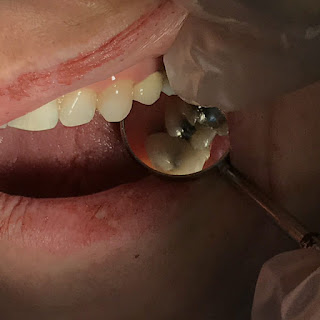Sarcoidosis: Causes, Symptoms, Diagnosis & Treatment
What Eye Twitching Might Signal About Your Health
In the realm of bodily quirks, few experiences are as disconcerting and curious as the sensation of your eye jumping or twitching. This phenomenon, medically referred to as myokymia, is commonly experienced by many and can range from a mild, hardly noticeable flicker to a more pronounced and distracting twitch. Understanding what your eye jumping signifies about your health can unravel some of the mystery behind this peculiar occurrence and provide insights into your overall wellbeing.
IntroductionAt some point, you might have felt your eye involuntarily twitching or jumping, leaving you bewildered and perhaps a tad concerned. This sensation, often appearing out of nowhere, can lead you down a rabbit hole of health-related questions. Is it a sign of something serious? Could it be an indicator of stress, fatigue, or perhaps an underlying health condition? In this comprehensive exploration, we aim to demystify the causes behind eye jumping and what it reveals about your health. By delving into the medical, lifestyle, and environmental factors that can trigger this phenomenon, this article not only seeks to inform but also to reassure and guide you toward understanding your body's signals.
Understanding Eye JumpingBefore diving into the causes and implications of eye jumping, it's crucial to understand what exactly is happening when your eye twitches. Myokymia, the technical term for this condition, involves involuntary contractions or spasms of the eyelid muscle. These spasms are usually harmless and transient, affecting the upper or lower eyelid of one eye.
Common Causes of Eye JumpingSeveral factors can contribute to eye jumping, ranging from benign to more serious conditions. Here are some of the most common culprits:
– Stress: Often considered a primary factor, stress can trigger various physical responses, including eye twitching.– Fatigue: Lack of sleep or exhaustion can lead to eye jumping, highlighting the body's need for rest.– Eye Strain: Prolonged screen time or intense focus on visual tasks can strain the eyes, potentially causing twitching.– Caffeine and Alcohol: High consumption of caffeine or alcohol has been linked to increased instances of eye twitching.– Nutritional Imbalances: Deficiencies in certain minerals, such as magnesium, might contribute to twitching.– Allergies: For some, eye allergies can lead to twitching by causing irritation and an urge to rub the eyes.
When to Consult a DoctorWhile eye jumping is usually harmless, there are situations where it might indicate a more serious condition. If you experience any of the following, it's advisable to seek medical advice:
– Persistent twitching that doesn't subside over several weeks.– Twitching that extends to other parts of your face or body.– A completely closed eyelid or difficulty opening the eye.– Redness, swelling, or discharge from the eye.
Lifestyle and Environmental AdjustmentsAddressing eye jumping often involves simple lifestyle or environmental adjustments. Here are strategies that can help mitigate this condition:
Stress Management and SleepImplementing stress-reduction techniques, such as mindfulness, yoga, or deep breathing exercises, can alleviate eye twitching. Ensuring adequate rest and adopting a consistent sleep schedule are also beneficial.
Screen Time and Eye StrainTo reduce eye strain, follow the 20-20-20 rule: every 20 minutes, look at something 20 feet away for at least 20 seconds. Adjusting screen brightness and ensuring proper lighting can also help.
Diet and HydrationMaintaining a balanced diet rich in essential nutrients and staying hydrated can prevent twitching caused by nutritional deficiencies or dehydration.
Limiting StimulantsReducing the intake of caffeine and alcohol may help decrease the frequency of eye twitching.
ConclusionEye jumping, while often a benign and temporary annoyance, serves as a reminder of our body's intricate connection to our lifestyle, environment, and overall health. By understanding the potential causes and implementing practical adjustments, most individuals can alleviate this condition effectively. However, it's essential to remain vigilant. If your eye twitching persists or is accompanied by other symptoms, consulting a healthcare professional is a prudent step to rule out more serious health issues. Ultimately, paying attention to this and other bodily signals is key to maintaining both your ocular and general health, ensuring that minor twitches don't overshadow your well-being.
This story was created using AI technology.
Ophthalmologist Stresses Adopting Preventive Measures To Avoid Eye Allergies
RAWALPINDI, Apr 01 (APP): Leading ophthalmologist at Al-Shifa Trust, Dr. Tayyab Afghani on Monday said that pollen allergy effects could be avoided through preventive measures.
Talking to media, he said that the springtime brings an extremely high pollen count, which can cause burning and redness in the eyes, adding eye allergies can cause watery and puffy eyes, but the same therapies and self-care practices that relieve the symptoms of slurred allergies also work for eye allergies.
In addition to sneezing and a stuffy runny nose, the symptoms can include red eyes, irritation, itching, tearing or runny eyes, swollen eyelids, soreness, burning, or pain, he added. Dr. Tayyab said that optical allergies result from the body overreacting to an allergen like any other allergy.
"The immune system produces antibodies that release histamine and other chemicals from the eyes, causing red, watery eyes and irritation," he added. Typically, seasonal allergies occur in early spring during the summer, he said and added that allergens in the atmosphere such as spores from mold and pollen from grasses, trees, and weeds, were known as triggers. He claimed that aside from causing momentary blurriness, ocular allergies, commonly known as allergic conjunctivitis or eye allergies do not significantly endanger vision.In many cases, symptoms appear as soon as the allergen comes into contact with the eyes. Dr. Tayyab Afghani said the first step was to avoid triggers by staying inside during high pollen count periods which were often mid-morning and early evening. In order to protect their eyes from pollen people should drive with closed windows and wear sunglasses or eyeglasses, he suggested. He advised the eye patients to use eye drops provisionally to treat severe chronic ocular allergies while prolonged use of these drops can lead to negative effects.




Comments
Post a Comment